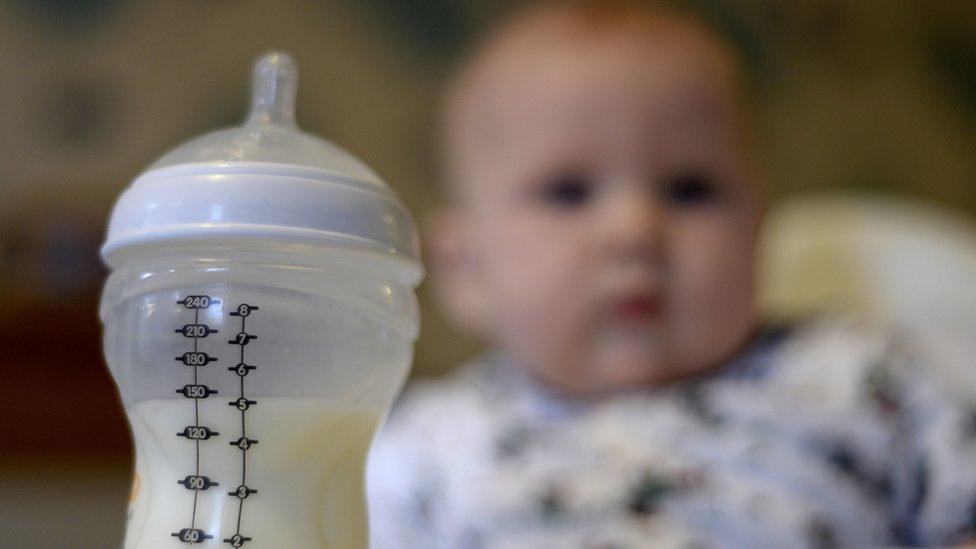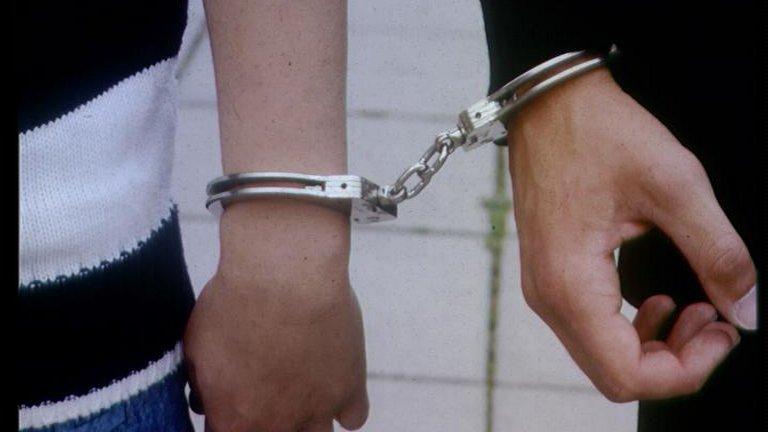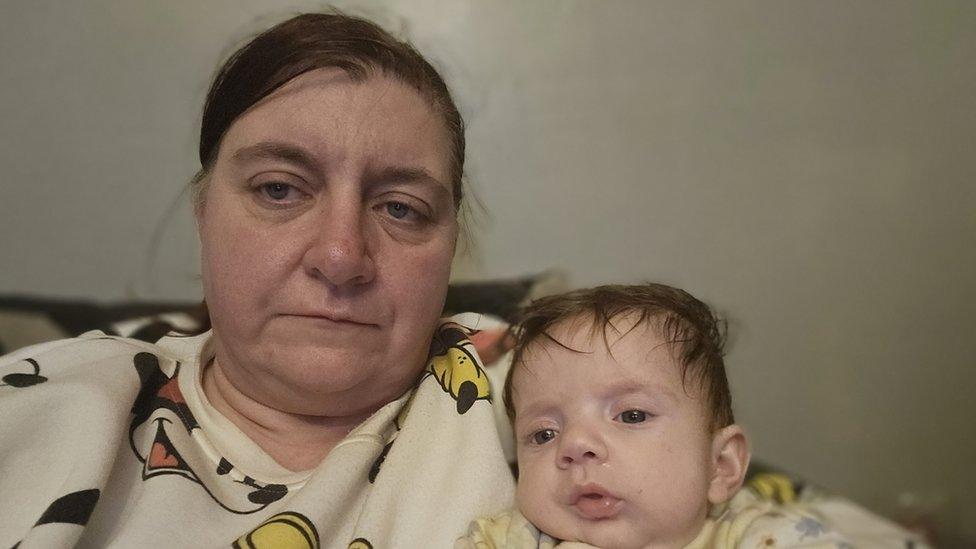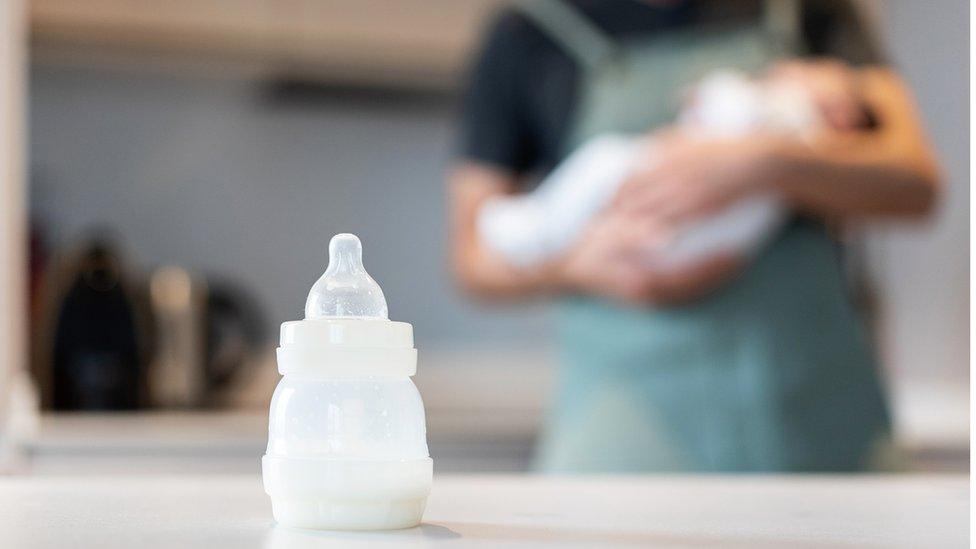Baby formula prices: Soaring costs devastating family finances - survey
- Published

The rising cost of formula milk is having a "devastating" effect on families and forcing them into "tough" financial choices, a report says.
Two thirds of women surveyed said the 25% leap in costs over the last two years had hit family finances.
Many reported cutting back on food for the rest of the household or using cow's milk in their babies' diets.
The British Pregnancy Advisory Service (BPAS), called for "bold" solutions such as subsidises and price caps.
The service said the cost of one box of the cheapest formula milk is now greater than the £8.50-a-week Healthy Start voucher families receiving qualifying benefits can claim.
Two thirds of women surveyed for BPAS said they felt anxious or worried about the product's cost.
Last month, the Consumer and Markets Authority (CMA) said formula prices had risen by a quarter over the past two years.
Just two suppliers accounted for 85% of infant formula sales, the CMA said, and there was "very limited availability" of cheaper own-brand alternatives.
The rise in costs has correlated with a spike in formula thefts as part of a surge of shoplifting during the cost of living crisis.
While most mothers breastfeed their babies at birth, fewer than 20% are exclusively breastfed by three months and 1% of babies are exclusively breastfed by six months, according to a NHS infant feeding survey from 2010.
Sainsbury's stores placed security tags on formula products last year and some Co-op stores placed them behind tills in an attempt to prevent shoplifting.
The service's chief executive Clare Murphy said: "Our report clearly shows the toll the current cost of formula is having on women and their families.
"For some women this was also compounded by a sense of guilt and shame around not breastfeeding. This must change.
"Supporting breastfeeding does not need to come at the, quite literal, expense of failing to tackle the issues of access to an affordable, consistent supply of formula milk, and we need some bold initiatives to achieve this.
"Infant feeding, whether by breast or bottle, is both a child health issue and a matter of reproductive choice. We must get this right."
The BPAS survey was conducted in October by Censuswide. All 1,001 participants were British women who had formula-fed their baby aged under one in the last year.

Are you affected by the issues raised in this story? Share your experiences by emailing haveyoursay@bbc.co.uk, external.
Please include a contact number if you are willing to speak to a BBC journalist. You can also get in touch in the following ways:
WhatsApp: +44 7756 165803
Tweet: @BBC_HaveYourSay, external
Please read our terms & conditions and privacy policy
If you are reading this page and can't see the form you will need to visit the mobile version of the BBC website to submit your question or comment or you can email us at HaveYourSay@bbc.co.uk, external. Please include your name, age and location with any submission.
Related topics
- Published18 December 2012

- Published2 December 2023

- Published29 November 2023
